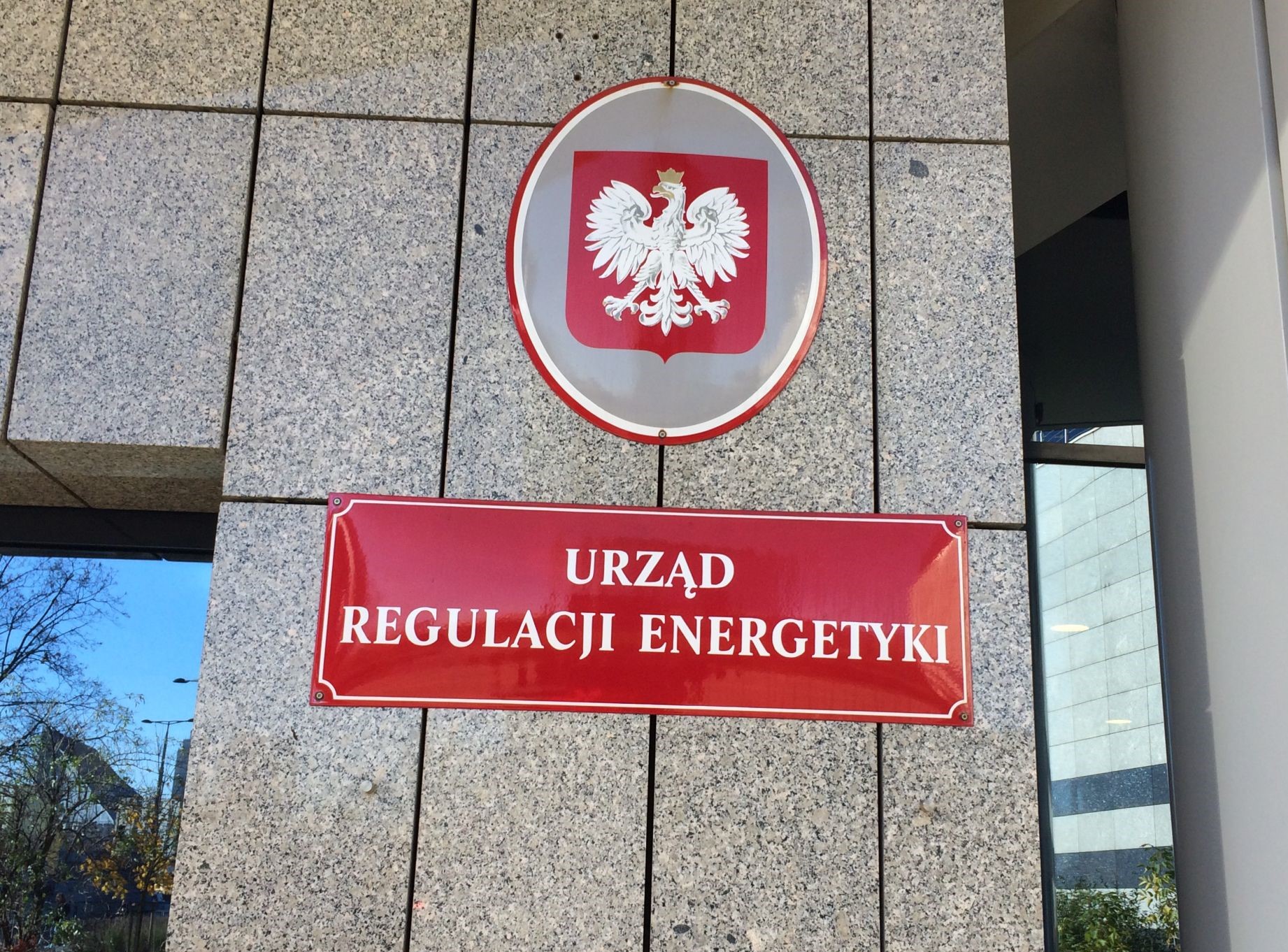Coal units will be needed beyond the derogation period. There are two ways to maintain them.

- The challenges associated with the expected occurrence of the so-called coal capacity gap in 2025, resulting from coal-fired power plants losing support from the capacity market, have essentially been resolved, but the icing on the cake is still missing.
- Maciej Burny, CEO of Enerxperience, told us (July 24, 2025) that Poland has submitted an application in Brussels for a derogation extending the capacity market for coal-fired power plants until the end of 2028, but there is no approval decision yet.
- However, there are no major concerns about a derogation for coal in the capacity market until 2028. Much attention is being paid to supplementary auctions for coal, as well as solutions after 2028, because then coal-fired power plants, which will lose support from the capacity market, will still be needed on some scale.
- Waldemar Szulc, director of TGPE, points out that mechanisms such as power substitution and strategic reserve, which is also indicated by the Energy Regulatory Office, can be used to maintain a specific number of coal-fired power units at disposal for as long as needed.
When the capacity market was launched in Poland (the 2018 Act), it was already known that we would have to face the challenge of filling the so-called capacity gap left by coal-fired power plants, which – because they did not meet the emission limit of 550 kg CO2/MWh – would lose support from the capacity market in 2025, would become unprofitable and would have to be shut down.
Over time, it turned out that closing the emerging coal-fired power capacity gap in time could be very difficult, because the capacity market, which was supposed to stimulate investments in new power plants, among other things, was performing poorly in this respect.

"As long as power plants that did not meet the 550 kg CO2/MWh emission limit were eligible to participate in capacity market auctions, that is, until the 2020 auction, existing coal-fired power plants dominated the capacity market. Only subsequent auctions, starting in 2021, began to bring about the construction of new capacity , primarily gas-fired and energy storage facilities," commented Dr. Aleksandra Gawlikowska-Fyk , then at the Energy Forum, for WNP in the summer of 2024.
In order to avert the looming problems, Poland lobbied for changes to EU law that would be more favorable to coal.
This was successful and it became possible to extend the capacity market for coal-fired power plants (derogation) until the end of 2028 , which postponed the problem of filling the capacity gap left by coal.
In order to benefit from the derogation, Poland amended the Capacity Market Act, introducing provisions on supplementary auctions - for the second half of 2025 and for the years 2026, 2027 and 2028.
The first one took place in May 2025, but according to information from July 24, 2025, the derogation had not yet been activated. While there's no reason to believe it won't be implemented at all, a problem has arisen.
The derogation is not formally in effect yet. We are waiting for the application to be approved.Maciej Burny, president of the consulting company Enerxperience , explains that the extension of the capacity market for Polish coal-fired power plants until the end of 2028, i.e. by three and a half years, was made possible by the new EU regulation on the internal electricity market.
He points out that, according to this regulation, countries wishing to benefit from it, like Poland, must submit a request for a derogation to the European Commission's Directorate-General for Energy.
Only the acceptance of this application will trigger the derogation . Poland has submitted an application for a derogation extending the capacity market for coal-fired power plants until the end of 2028, but there has not yet been an approval decision from the European Commission's Directorate-General for Energy, which means that the derogation has not yet been activated , Maciej Burny told us (July 24, 2025).
In February 2025, the Ministry of Climate submitted an application to the European Commission for a derogation regarding the application of the emission limit within the capacity market, including a derogation for coal. Is there reason to be concerned about the derogation for coal-fired power plants until 2028?
" To my knowledge, there is no reason to worry about the approval of the Polish derogation application, but a problem has arisen. The supplementary auction for the second half of 2025 has been concluded, but the resulting capacity agreements cannot be executed because the derogation is not approved. This is determined by the Capacity Market Act," says Maciej Burny.

The problem of 2025, one might cautiously say, has been overcome by the derogation, but at the same time it has been replaced by the problem of 2028, which is not yet fully understood how it will be solved.
Expert assessments, as well as information received from the Energy Regulatory Office (URE), indicate that coal-fired power plants will still be needed after 2028, and they will then be excluded from the capacity market . There is no shortage of opinions or suggestions that without this support, they will be loss-making, forcing us to rethink how to keep them in the market for as long as necessary.
After 2028, coal-fired power plants that will be outside the capacity market will also be needed"According to the analyses of the President of the Energy Regulatory Office (URE), coal-fired power plants that will be outside the capacity market after 2028 will still be needed to balance the National Power System. Low-emission renewable energy sources are not fully capable of ensuring stable system operation," the Energy Regulatory Office (URE) points out.
The Energy Regulatory Office added that "the high operational flexibility of coal-fired units combined with a small number of gas-fired units in the system is capable of providing quick support in the event of a failure or a sudden change in demand in the energy system."
Waldemar Szulc, director of the Office of the Polish Power Plants Economic Society (TGPE), points out that the analyses carried out by TGPE "are consistent with the conclusions of the analyses carried out by PSE and indicate that in the coming years there is a threat to the continuity of electricity supply."
- This is mainly due to the risk of permanent shutdown of coal-fired units, whose electricity production is unprofitable from the first year of the analysis (2025), while there is no guarantee that new investments in controllable generation sources (gas) will be made in time to compensate for the power losses caused by the shutdown of unprofitable coal-fired sources - comments Waldemar Szulc.
All opinions expressed by Waldemar Szulc in this material are expert opinions and not the position of the TGPE. The Director of the TGPE Office also points out that, in addition, the safe operation of the National Power System requires the systemic and quality services provided by coal-fired power units.
" Most coal-fired units , but not necessarily entire power plants that will lose support from the capacity market after 2028 and be outside the capacity market, will still be needed to balance the National Power System (KSE) and ensure safe operation of the KSE. The number of units needed will depend on the actual pace of their replacement with alternative gas sources and the development of energy storage," says Waldemar Szulc.

When asked whether, according to the company's analyses, coal-fired power plants that will lose support from the capacity market after 2028 and will be outside the capacity market will still be needed to balance the National Power System, the Polish Power Grid (PSE) emphasizes the importance of new investments.
" The results of analyses in this area largely depend on the pace of investment in new dispatchable generating capacity. As a rule, each decommissioned dispatchable unit should be replaced by a new one with equivalent capacity," the PSE press office told WNP.
Not everyone always agrees with the grades coming from PSEWaldemar Szulc estimates that under the current legal framework (capacity market for sources with CO2 emissions above 550 kg CO2/MWh only until December 31, 2028 and no other support mechanisms), "all coal-fired power plants that do not currently have valid multi-year capacity agreements concluded on the basis of previous capacity auctions, remaining with revenues only from the energy market, will be permanently unprofitable ."
- This means, according to data from the PSE document "Assessment of resource adequacy at the national level 2025-2040", that from 2029, without new capacity mechanisms, only about 7 GW of coal-fired capacity will be available (...), because surveys collected by PSE showed that the rest would be discontinued - comments Waldemar Szulc.
He adds that the same document shows that the introduction of additional capacity mechanisms would make it possible to obtain the coal-fired capacity required by PSE to balance the National Power System from approximately 21 GW in 2029 to approximately 15 GW in 2035.
But not everyone agrees with PSE's assessments. This became clear during work on the draft regulation regarding capacity auction parameters for the 2030 delivery year.
The Ministry of Climate and Environment (MKiŚ) has proposed that the capacity demand in the main auction for deliveries in 2030 should be set at 10,720 MW.
The President of the Energy Regulatory Office (URE) assessed this as excessive. He stated during the consultations that the indicated capacity was influenced by PSE's assumption that the estimated capacity of conventional units available outside the capacity market would be 0 MW.
"In the opinion of the President of the Energy Regulatory Office, this assumption is inadequate to the market situation. The results of periodic surveys conducted by PSE (...), as well as information available to the Energy Regulatory Office , do not indicate plans to decommission all conventional generating units , centrally dispatched and not subject to capacity market contracts ," the regulator stated.
The Ministry of Climate is conducting conceptual work on new support mechanismsSo far, the companies themselves have been sending rather clear signals indicating that if the necessary coal blocks are to remain in the system, they must be provided with financing.
Piotr Gołębiowski , Vice-President of the Management Board for Commercial Affairs at Tauron Polska Energia, during a press conference in May 2025, repeated, among other things, what Tauron had been communicating for a long time.
He stated that in the case of units that do not win the supplementary auction of the capacity market, it must be taken into account that "they will be gradually withdrawn because they do not meet the economic conditions for their maintenance."

Dariusz Marzec , president of the management board of PGE , commenting on the group's new 2025 strategy in June, stated, among other things, that "the plan for coal is to gradually replace coal-fired power plants with gas-fired ones."
When asked what the group would do if coal-fired power units were needed but were left without support from the capacity market and maintaining them was unprofitable, he said:
- We will talk to the operator, but mainly with the government, about the fact that since these power plants no longer play a market role, but only constitute a safety net for the power system , someone should get involved in financing this insurance policy .
The authorities recognize the problem. The Ministry of Culture and Environment indicates that coal-fired power plants that lose support from the capacity market may still play a significant role in balancing the National Power System.
"Keeping some coal-fired units in the system may prove necessary, even if they are not profitable on the energy market . Therefore, conceptual work is underway on new support mechanisms that could guarantee their availability in the National Power System," the Ministry of Culture and Environment stated in response to our questions.
It's a pity it didn't specify which ones, but maybe it's a result of the Ministry of Energy being established, which is responsible for the power industry.
There are currently two main ideas to keep coal on the market after 2028In turn, as reported by the Polish Press Agency, former Minister of State Assets Jakub Jaworowski, stating that there is no justification for NABE, pointed out that it is necessary to develop additional support mechanisms for coal sources at the EU level .
- I saw the idea of the Ministry of State Assets (...), which assumes that energy groups will obtain financing for coal-fired units until they are shut down when new gas-fired units are launched - says Anna Łukaszewska-Trójtakowska, former deputy minister of climate in 2022-2023.
In her opinion, this would mean forcing energy groups to undergo a specific transformation, but she says she has no objection to this because it is about the country's energy security.
- However, such a, let's say, bundled transaction - further support for coal from the capacity market in exchange for investments in low-emission sources - requires the consent of the European Commission - emphasizes Anna Łukaszewska-Trójtakowska.

According to the Energy Regulatory Office, coal-fired power plants that will be outside the capacity market after 2028 and will still be needed to balance the National Power System, and will not be able to survive solely on energy sales, may be covered by the strategic reserve mechanism, i.e. remain ready to be launched in crisis situations.
"This would require the consent of the European Commission and proof that the units are necessary for energy security," the Energy Regulatory Office notes.
Waldemar Szulc points out that last year TGPE prepared a report "Business assessment of the functioning of the capacity market, carried out in accordance with the guidelines of Article 103 of the Capacity Market Act".
- The postulates presented in this report are still valid - says Waldemar Szulc.
The report emphasizes, among other things, the need to introduce transitional capacity mechanisms. These are essentially mechanisms designed to maintain a specific number of coal-fired power plant units available for as long as needed.
"These could be various mechanisms. First, coal-fired generating units could benefit from an additional capacity market mechanism until new controllable energy sources are commissioned, including gas-fired power plants, as part of the so-called capacity substitution mechanism ," says Waldemar Szulc.
As you can see, this idea, if not the same as the one presented by MAP, is certainly very similar. Waldemar Szulc emphasizes that its implementation would require a change in regulations at the European Union level, i.e., another, temporary extension of coal-fired power sources' participation in the capacity market.
Another tool recommended by TGPE for use under European regulations on capacity mechanisms is the strategic reserve, as indicated above by URE.
- In my opinion, it is necessary to adopt a roadmap of actions at the government level , ensuring the implementation of mechanisms guaranteeing the maintenance of the necessary generating assets in coal-fired power plants - summarizes Waldemar Szulc.
wnp.pl





